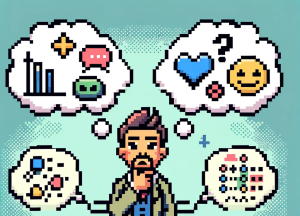
Understanding and Addressing Youth Suicide
Suicide among youth is a growing concern, with devastating consequences for individuals, families, and communities. The article Saving Lives: Recognizing and Intervening with Youth at Risk for Suicide provides critical insights into this alarming issue, particularly relevant for school psychologists and professionals in school mental health.
The Rising Challenge of Youth Suicide
Suicide is the second leading cause of death among youth in the United States, a statistic that underscores the urgency of addressing this crisis. Adolescence marks a significant increase in suicide risk, especially among males who are more likely to die by suicide compared to females.
Recognizing the Signs: Proactive Screening
Proactive suicide risk screening is a vital tool in early detection and intervention. Screening can be conducted in various settings, including schools and healthcare facilities, to identify at-risk youth. Utilizing evidence-based screening tools like the Columbia-Suicide Severity Rating Scale (C-SSRS) and the Ask Suicide-Screening Questions (ASQ) can effectively pinpoint youth needing further assessment and care.
School-Based Screening: A Focal Point for Prevention
Schools are critical venues for suicide risk screening due to their access to a large population of youth. Implementing structured screening programs can identify students with suicidal thoughts or behaviors that may otherwise go unnoticed. Schools, with their unique position, can play a pivotal role in connecting these students to essential services.
Interventions: Approaching Youth at Risk
While empirical support for interventions specifically targeting youth suicide risk remains limited, there are promising approaches. These include various psychotherapeutic interventions like Dialectical Behavior Therapy for Adolescents (DBT-A) and Integrated Cognitive Behavioral Therapy (I-CBT), which have shown effectiveness in reducing suicidal behavior and ideation.
The Role of School Psychologists in Intervention
School psychologists can be instrumental in implementing these interventions. By working closely with at-risk students, they can apply therapeutic techniques suited to the individual needs of each student, thereby playing a crucial role in their mental health and well-being.
The Importance of Education and Awareness
Educational programs aimed at raising awareness about suicide are crucial. These include gatekeeper training programs for school staff and peer leadership programs that empower students to recognize and respond to signs of suicide risk among their peers.
Schools as Centers for Suicide Prevention Education
Schools are ideal settings for implementing these educational programs. They can effectively disseminate knowledge and awareness about suicide prevention, thereby creating a supportive environment where students feel empowered to seek help and support each other.
Challenges and Future Directions
Despite advancements in screening and intervention strategies, challenges remain. These include ensuring sustained engagement in interventions, addressing the diverse needs of youth from different backgrounds, and effectively implementing these strategies in various settings, including schools. Ongoing research and adaptation of these strategies are crucial to meet these challenges.
Conclusion
Suicide among youth is a complex and multifaceted issue that demands a proactive and informed approach. School psychologists and related professionals play a vital role in identifying, supporting, and intervening with at-risk youth. Through comprehensive screening, effective interventions, and educational programs, we can work towards reducing the incidence of youth suicide and fostering a healthier, more supportive environment for our young people.
Empower Your Mind, Transform Education!
Leap into a world of groundbreaking school psychology for just $50 per year. With This Week in School Psychology, get the most stimulating content delivered directly to you. Benefit from time-saving summaries and impactful insights. Your support fosters a more enlightened educational sphere. Don’t just read about change; be the change. Subscribe now for a year of empowerment!



